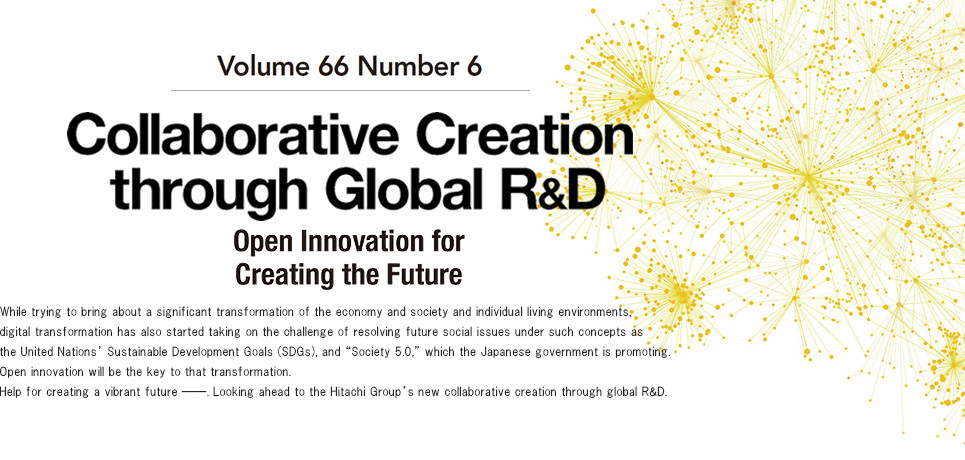
While trying to bring about a significant transformation of the economy and society and individual living environments, digital transformation has also started taking on the challenge of resolving future social issues under such concepts as the United Nations’ Sustainable Development Goals (SDGs), and “Society 5.0,” which the Japanese government is promoting. Open innovation will be the key to that transformation.
Help for creating a vibrant future ――. Looking ahead to the Hitachi Group’s new collaborative creation through global R&D.

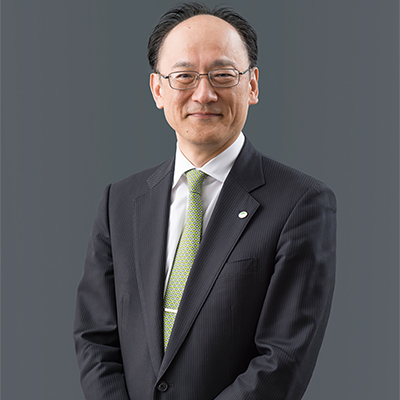
Reflecting on the past year, there has been a sudden acceleration in “digital transformation” that utilizes digital technologies and artificial intelligence (AI). This transformation began around businesses involving electronic commerce in the distribution, retail, and manufacturing sectors, and is now occurring in various areas such as urban planning, mobility, healthcare, and agriculture.
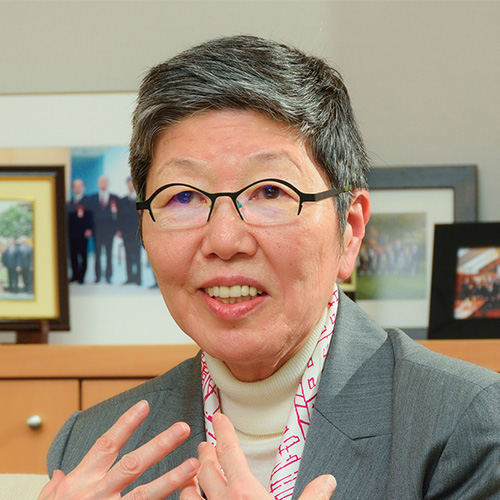
We are now in a new era, one in which innovation driven by enabling technologies such as IoT, AI, and robotics are bringing significant changes to the economy and society. Among those changes is Society 5.0, which the Japanese government promoted in its 5th Science and Technology Basic Plan. We asked Yuko Harayama, Executive Member of the Council for Science, Technology and Innovation, about the pioneering “super smart society” aimed for by Society 5.0.

To realize the super smart society that Society 5.0 aims for,Hitachi is promoting projects for illuminating issues that are expected to arise in the process of its evolution and for illuminating the future vision needed to solve them. A method called “vision design” is applied in order to provide insights as to how technology can contribute to the form that society should take in the future.
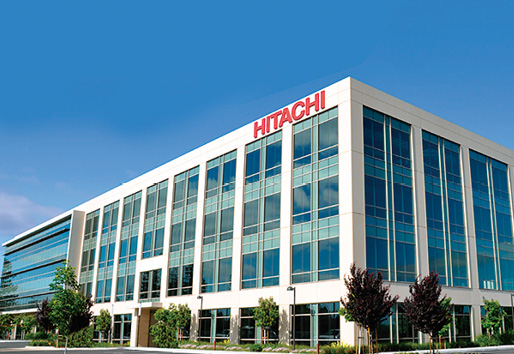
The Global Center for Social Innovation (CSI), of which there are four overseas centers, are Hitachi's executive organizations that promote customer-driven R&D. Regarding responses to these unique social issues, center general managers at each of the four overseas Global Centers for Social Innovation discuss what kind of collaborative creation with customers is being promoted by making full use of Hitachi’s R&D strengths.
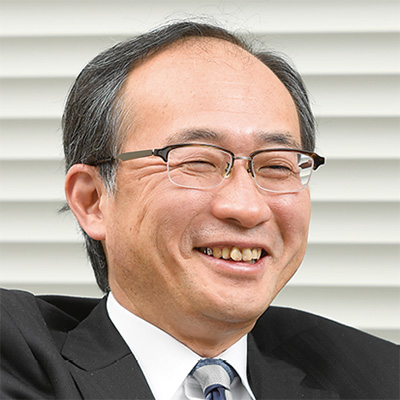
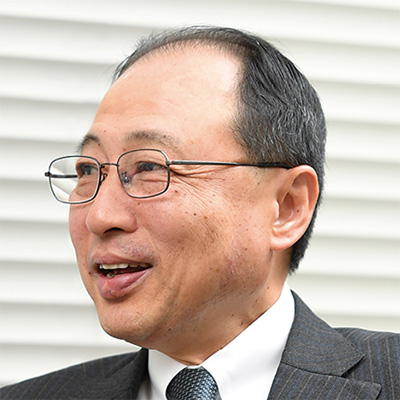
In data-driven businesses, effective data utilization among stakeholders is the key to success.
In this article, Professor Watanabe of The University of Tokyo and Mr. Toda, General Manager of Hitachi, Ltd.’s Intellectual Property Division share their opinions and insights regarding new intellectual property strategies in response to the challenges associated with digital transformation.


The Davos Meeting, held every year in January, is where the leaders from political and business circles, academia, and international organizations meet in one place and discuss global issues. For over 40 years since its establishment, this meeting is said to have a great enough influence to affect today’s trends and social conditions.
The town in which the meeting is held is famous for being the setting of Thomas Mann’s “The Magic Mountain.” Portrayed in that masterpiece, published almost 100 years ago, the spirit still lives on in today’s Davos Meeting――. Participating in the WEF annual meeting of 2017, Kenji Kato of the Corporate Sales & Marketing Group, Hitachi, Ltd. reports on what he has witnessed in the “world of today” in a frank discussion.

The proliferation of sensors and the IoT has accelerated the innovation of new services and business models by overcoming geographic and time constraints. Global Center for Social Innovation is aiming at driving innovations through proposing and validating solutions for the issues extracted from dialogues with customers and stakeholders.
Hitachi’s Center for Technology Innovation is creating digital solutions that combine innovative information technology, such as artificial intelligence, with the operational technology know-how in social infrastructure and corporate and industrial systems that Hitachi has cultivated over the years, and supplying new value to customers in diverse fields by helping to solve social issues.
The Center for Exploratory Research works on research in collaboration with a wide variety of universities, companies, and other stakeholders to help achieve a human-centric society that pursues people’s essential desires for “outcomes and well-being.” The aim is to help resolve future social issues through active promotion of open innovation.